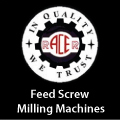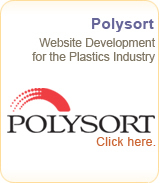
TALLERES PENA S.A.
Contact: Christopher Wapf
Arquimedes, 18
Barcelona, Barcelona 08912
Spain
Phone: +34 93 388 17 54
Fax: +34 93 383 66 56
Talleres Pena is one of the few barrel and screw builders in the world able to construct any kind of conical double extrusion screw cylinder either in one piece or in sections.
Our building and repair capacity ranged from Ø30 to Ø400 with the maximum lengths on the market. We are specialists in repairing any kind of cylinder whatever its technology; double parallel, double corrotating and double conical single screws.
SINGLE SCREW
The manufacturing dimensions range from Ø12mm to Ø400mm with the maximum lengths on the market.
PARALLEL COUNTERROTATIONIG DOUBLE SCREW
The manufacturing dimensions range from Ø30 to Ø250 with the maximum lengths on the market.
PARALLEL CO-ROTATING DOUBLE SCREW
All kinds of cylinders for sections with cooling and without. From Ø30 to Ø200mm.
CONICAL DOUBLE SCREW
Talleres Pena is one of the few barrel and screw manufacturers in the world able to construct any kind of conical double extrusion screw cylinder either in one piece or in sections.
HISTORY
Bimetallic treatments both for screws and cylinders are a high income production option in the medium and long term. This kind of lining is not well known enough in Europe to be able to valve its enormous possibilities.
PROCESS
We tend to talk about bimetal in general terms as if there were only one process and one quality, an idea very far from the truth BIMETALLIC lining is the process by which we make a final product, for example, a bimetallic cylinder, but depending on the alloy chosen this cylinder can attain very different grades of quality. These grades of quality range from standard alloys only resistant to abrasion (Fe base alloys) t ohigh quality alloys with maximum resistance to abrasion and corrosion (Ni+WC base alloys).
Because of this it is important, when comparing prices, to know what kind of alloy is being bought. People also tend to compare alloys with regards to mistake as the hardest alloys Fe base are not only not the best, but are also the worst in terms of quality and resistance.
Hardness is important but only to a certain point. The nature of the alloy is much more important than its hardness, in its components. Keeping this in mind, the best alloys are those of Ni base with important percentages of WC (Carbide Tungsten) such as PENA 69 alloy with extremely high resistance to abrasion and corrosion.
One of the main advantages gained from a bimetallic assembly with alloys such as our PENA 69 in the cylinder and PENA 170 in the screws, is firstly peace of mind with regards to assembly wear and secondly the possibility of processing any kind of plastic with any kind of abrasive charge (fibreglass, calcium carbonate, etc.) and any corrosive additive, the assembly will always perform impeccably.
Another very much used option is with PENA 40 in the cylinder -a very high resistance alloy against abrasion and very good against corrosion- and can be combined in the screw with any kind of alloy of thermal treatment.




